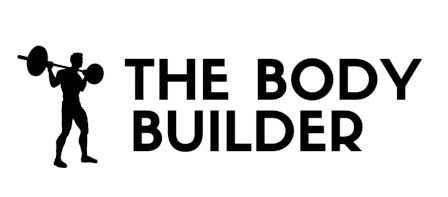For fitness and bodybuilding
HOW IMPORTANT ARE FATS TO YOU?
Although we always talk about protein and carbs in the bodybuilding and fitness industry.
However fats are an essential part of the bodybuilding diet and it is important to understand their pros and cons weather you are cutting or bulking.
Fats are divided into essential fats and non-essential fats each has its own advantages and dis advantages, Moreover essential fats benefits exceeds the non-essential.

FAT TYPES
- OMEGA 3-6-9 Essential Fats (EFA)
- Saturated fats (Non-Essential Fats)
- Omega 3-6 Polyunsaturated fats
- Trans fats
- Omega 9 Monounsaturated fats
BENEFITS OF OMEGA 3-6-9 (EFAs)
- Good for the heart
- Will maintain your healthy cholesterol levels
- Improve pregnant women health
- Help lose body fat
- Improve eye health
- Reduce depression
- Improve brain health
- Reduce risk of stroke
- Prevent blood clotting by maintaining Omega 3 and Omega 6 that work against each other to form balance
- Help forming healthy cell membranes
- Maintain healthy skin and hair
- Help building muscles
TIP 1: Always cook with high smoke point oil like extra virgin olive oil, flax seed, peanut oil, macadamia oil.
TIP 2: Cooking with regular olive oil with low smoke point can be used for a quick pan fry only.
BENEFITS OF SATURATED FATS (NON-ESSENTIAL FATS)
EFA (ESSENTIAL FATS)

Omega 3-6 (Polyunsaturated fats)
Omega 3
It is the most important fat nutrient and it is mainly found in fish and some vegetable oil and seeds canola oil and peanut oil.
Normal People Doses: 1.6 grams for adults and 1.1 grams for females
Bodybuilders Doses: 2 to 3 grams
Common Foods containing them per 100:
- salmon: 4.0 grams EPA and DHA
- mackerel: 3.0 grams EPA and DHA
- sardines: 2.2 grams EPA and DHA
- anchovies: 1.0 grams EPA and DHA
- chia seeds: 4.9 grams ALA
- walnuts: 2.5 grams ALA
- flaxseeds: 2.3 grams ALA
Omega 6 (Polyunsaturated fats)
Found mostly in vegetable oil
Normal people Doses: According to U.S. institute of medicine 17 grams for males and 12 grams for females.
Bodybuilders Doses: the same

Common Foods containing them per 100:
- soybean oil: 50 grams
- corn oil: 49 grams
- mayonnaise: 39 grams
- walnuts: 37 grams
- sunflower seeds: 34 grams
- almonds: 12 grams
- cashew nuts: 8 grams
Omega 9 (Monounsaturated fats)
Those fats are containing one double or triple bond per molecule, it is healthy and one should be consuming, however they are not actually essential as body can produce them.
No doses: body produce them

Common Foods containing them per 100:
- olive oil: 83 grams
- cashew nut oil: 73 grams
- almond oil: 70 grams
- avocado oil: 60 grams
- peanut oil: 47 grams
- almonds: 30 grams
- cashews: 24 grams
- walnuts: 9 grams
SUPPLEMENTS
If you have a nutrition dense diet, we do not recommend an Omega 3-6-9 but Omega 3 will be sufficient however if you feel your diet is missing those healthy fats then you go for an Omega 3-6-9.
It is recommended to choose a supplement that contain Vitamin E, as well the best type of Omega 3 is fish oil then comes the flax seed oil.

SATURATED FAT
If you are a bodybuilder or fitness enthusiasts you should be limiting the overall fat specially saturated fat however limiting doesn’t mean you drop the fat intake to zero as your body needs to function you need a minimum amount and below,
we will show what benefits you will be having from consuming those minimum

BENEFITS:
- Raising testosterone
- Improve cardiovascular health
- Strengthen the bones
- Improve liver health
- Increase immune system
FOOD CONTAINING SATURATED FATS:
- Meat
- Chicken
- Egg yolk
- Butter
- Coconut oil
- Margarine
- Whole Milk
- Milk cheese
If you are a bodybuilder and have a six pack you should already know by now what doses is good for you, otherwise you should be limiting yourself from these fats otherwise all the health benefits we talked about will be the opposite.
TIP 1: Most bodybuilders every now and then add some butter, eat full fat yogurt which is good for you while maintaining your overall diet and cardio and six pack
TIP 2: Adding saturated fasts on your cheat meal or day will help your muscle building routine
TRANSFAT:
Are found in some animal products or hydrogenated vegetable oil and those should be avoided at all costs
Consuming these fats will increase your LDL which is the harmful cortisol, increase the risk of blood clotting, heart attack and strokes, it doesn’t have any health benefits but just harm

Examples of trans fat:
- Baked goods, such as cakes, cookies and pies
- Shortening
- Microwave popcorn
- Frozen pizza
- Refrigerated dough, such as biscuits and rolls
- Fried foods, including French fries, doughnuts and fried chicken
- Nondairy coffee creamer
- Margarine (non-natural)
FAQs
What makes up 95% of the fats in the diet?
About 95% of the fats in the diet are made up of triglycerides, which are composed of three fatty acids attached to a glycerol backbone. These triglycerides include a mix of saturated, monounsaturated, and polyunsaturated fatty acids.
What should my daily fat intake be?
Your daily fat intake should be about 20-35% of your total daily calories. For an average adult consuming 2,000 calories a day, this equates to about 44 to 77 grams of fat per day. However, individual needs may vary based on factors like age, gender, activity level, and overall health.
Is 100 grams of fat a day too much?
Consuming 100 grams of fat per day may be excessive for most people, as it exceeds the recommended daily intake of 20-35% of total calories from fat for an average 2,000 calorie diet.

